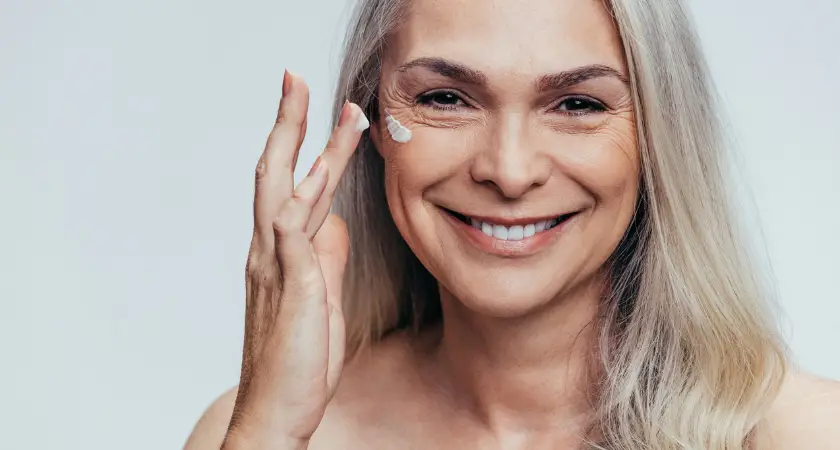Aging Gracefully: How Nootropics Can Enhance Cognitive Function in the Elderly
Are you ready to unlock the secrets to aging gracefully? As we age, it’s natural to experience changes in cognitive function, but that doesn’t mean we have to accept a decline in mental clarity and focus.
Enter nootropics, the cutting-edge supplements that are revolutionizing the way we approach aging. Nootropics, also known as “smart drugs,” are designed to enhance cognitive function, improve memory, and boost overall brain health.
In this article, we will explore how nootropics can specifically benefit the elderly population, helping them maintain their mental sharpness and vitality well into their golden years.
Whether you’re a senior looking to optimize your brain health or a caregiver seeking ways to support your loved one’s cognitive function, this comprehensive guide will provide you with valuable insights and practical tips for incorporating nootropics into your daily routine.
Get ready to embark on a journey of mental rejuvenation and discover the power of nootropics in enhancing cognitive function in the elderly.

Understanding Cognitive Function and Aging
Aging is an inevitable part of life, and along with it comes changes in cognitive function. As we get older, it’s common to experience a decline in memory, attention, and overall mental sharpness.
These changes can be attributed to various factors, including reduced blood flow to the brain, decreased production of neurotransmitters, and the accumulation of oxidative stress.
While these changes are a normal part of the aging process, they can have a significant impact on our quality of life.
Related Articles
Safety and Effectiveness of Nootropics in the Elderly|Seniors
What Are Nootropics?
Nootropics, often referred to as “smart drugs,” are a class of supplements that are designed to enhance cognitive function and improve brain health.
They work by targeting specific neurotransmitters, enzymes, and receptors in the brain to promote optimal brain function.
Nootropics can help improve memory, enhance focus and concentration, boost creativity, and even increase mental energy.
They are often used by students, professionals, and athletes to gain a competitive edge, but their benefits extend beyond these groups.
In recent years, nootropics have gained popularity among the elderly population as a way to maintain cognitive function and slow down age-related cognitive decline.
See Other Related Articles
Benefits of Using Nootropics For Cognitive Function in the Elderly
The use of nootropics in the elderly population can have several benefits. Firstly, nootropics can help improve memory and cognitive function, which is particularly important for seniors who may be experiencing age-related memory loss or cognitive decline.
By enhancing neuroplasticity and promoting the growth of new neurons, nootropics can support brain health and improve cognitive performance.
Additionally, nootropics can enhance focus and attention, making it easier for seniors to stay engaged and perform daily tasks with greater efficiency.
Improved mental energy and clarity can also contribute to a better overall quality of life, allowing seniors to enjoy activities and social interactions without feeling mentally exhausted.

Common Types of Nootropics for Cognitive Enhancement
There are several types of nootropics that have been found to be effective in enhancing cognitive function in the elderly. These include:
1. Cholinergics: Cholinergics are a class of nootropics that work by increasing the levels of acetylcholine in the brain. Acetylcholine is a neurotransmitter that plays a crucial role in memory and learning. By boosting acetylcholine levels, cholinergics can improve memory, attention, and overall cognitive function.

2. Racetams: Racetams are another popular class of nootropics that work by modulating the activity of glutamate receptors in the brain. Glutamate is an excitatory neurotransmitter that is involved in learning and memory. By enhancing the activity of glutamate receptors, racetams can improve cognitive function and promote neuroplasticity.
3. Adaptogens: Adaptogens are a class of herbs and botanicals that help the body adapt to stress and promote overall well-being. While not traditionally considered as nootropics, adaptogens can have cognitive-enhancing effects by reducing stress and improving mood, which in turn can improve cognitive function.
4. Lions Mane:
- Brain function: Lion’s mane contains compounds that can stimulate brain cell growth
- Nerve growth: Lion’s mane can promote the production of nerve growth factors (NGFs) which can improve cognitive function and mental well-bein.
How Do Nootropics Work?
Nootropics work through various mechanisms to enhance cognitive function. Some of the key mechanisms include:
1. Increasing neurotransmitter levels: Nootropics can increase the production and release of neurotransmitters such as acetylcholine, dopamine, and serotonin, which are involved in memory, mood, and cognition.
2. Improving blood flow to the brain: Nootropics can enhance cerebral blood flow, ensuring that the brain receives an adequate supply of oxygen and nutrients for optimal function.
3. Protecting against oxidative stress: Nootropics can act as antioxidants, protecting the brain from oxidative damage and reducing inflammation, which can contribute to cognitive decline.
4. Promoting neuroplasticity: Nootropics can stimulate the growth of new neurons and the formation of new synaptic connections, enhancing the brain’s ability to adapt and learn.
Factors to Consider When Choosing Nootropics for the Elderly
When choosing nootropics for the elderly, it’s important to consider several factors to ensure their safety and effectiveness. Here are some key factors to consider:
1. Medical history: It’s important to consider the individual’s medical history, including any pre-existing conditions or medications they may be taking. Some nootropics may interact with certain medications or exacerbate certain health conditions.
2. Dosage and purity: The dosage and purity of the nootropic supplement are crucial. It’s important to choose reputable brands that provide clear dosage instructions and use high-quality ingredients.
3. Side effects:
While most nootropics are generally safe when used as directed, some individuals may experience side effects such as headaches, gastrointestinal upset, or insomnia. It’s important to start with a low dose and monitor for any adverse reactions.
4. Individual response: Each individual may respond differently to different nootropics. It’s important to be patient and allow time for the effects to be noticed. It may also be necessary to try different combinations or dosages to find the most effective nootropic for the individual.
Recommended Dosage and Usage Guidelines for Nootropics
The recommended dosage and usage guidelines for nootropics can vary depending on the specific supplement and the individual’s needs.
It’s important to follow the dosage instructions provided by the manufacturer and consult with a healthcare professional if unsure.
Starting with a low dose and gradually increasing it can help assess tolerance and minimize the risk of side effects. It’s also important to note that some nootropics may need to be taken consistently over a period of time to experience their full benefits.
Potential Risks and Side Effects of using nootropics in the elderly
While nootropics are generally safe when used as directed, it’s important to be aware of potential risks and side effects.
Some individuals may experience mild side effects such as headaches, gastrointestinal upset, or insomnia. It’s also important to consider any contraindications or interactions with medications or pre-existing health conditions.
Consulting with a healthcare professional before starting any new supplement regimen is always recommended, especially for the elderly, who may have more complex health needs.
Other Lifestyle Factors to Consider for Cognitive Enhancement in the Elderly
In addition to using nootropics, there are several other lifestyle factors that can contribute to cognitive enhancement in the elderly. These include:
1. Healthy diet: A well-balanced diet rich in antioxidants, omega-3 fatty acids, and other brain-boosting nutrients can support brain health and cognitive function.
2. Regular exercise: Physical exercise has been shown to improve cognitive function and promote brain health. Engaging in regular aerobic exercise, strength training, and activities that challenge the brain, such as puzzles or learning a new skill, can have beneficial effects on cognitive function.
3. Quality sleep: Adequate sleep is crucial for optimal cognitive function. Poor sleep quality or lack of sleep can impair memory, attention, and overall cognitive performance. Establishing a regular sleep routine and creating a sleep-friendly environment can help promote restful sleep.
4. Mental stimulation: Engaging in activities that stimulate the brain, such as reading, learning a new language, or playing brain games, can help maintain cognitive function and promote neuroplasticity.
Conclusion
Aging gracefully doesn’t mean accepting a decline in cognitive function. With the help of nootropics, the elderly can maintain their mental sharpness and vitality well into their golden years.
Nootropics offer a safe and effective way to enhance cognitive function, improve memory, and boost overall brain health.
By understanding the different types of nootropics, considering important factors when choosing supplements, and incorporating other lifestyle factors, seniors can optimize their brain health and enjoy a better quality of life.
Aging may be inevitable, but the decline in cognitive function doesn’t have to be. Embrace the power of nootropics and unlock the secrets to aging gracefully.
